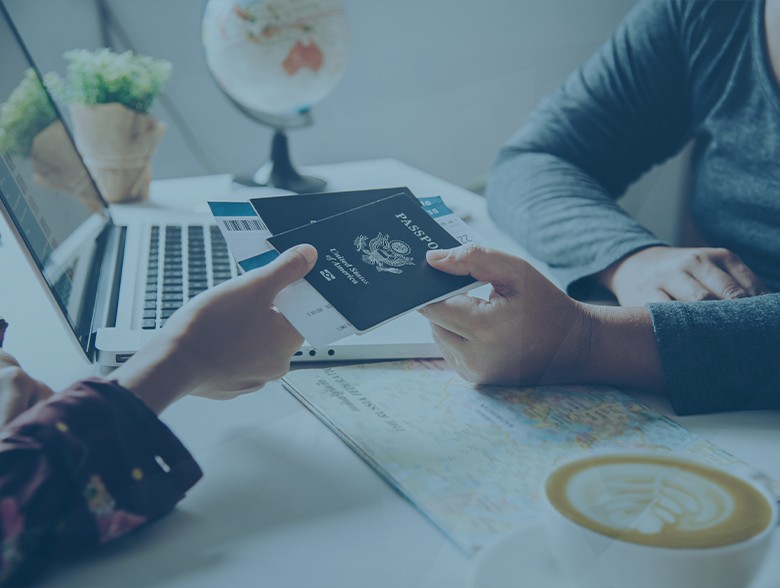By Shambhu Nath Jha, Associate Vice President, Fact.MR
Technology has touched every aspect of our lives and became an integral part of them. This has further changed the way we eat, shop, and spend our time. Right from booking a dinner table in a restaurant to booking a flight, technologies have made it easier than it was ever before. With these massive applications, such technologies are leveraged by users across many sectors. Even the travel sector has been impacted by ongoing technology advancements. Today, we can organize our entire trips, and book hotel rooms, flights, sightseeing tours, and other activities, all from a mobile device.
Technology has completely changed the way we travel, making our journeys more enjoyable and practical. What we currently refer to as travel technology is this significant transformation of the tourism sector driven by the integration of technologies. The use of e-commerce and IT in hospitality to save time, reduce cost and generate seamless travel experiences for customers is increasing industry competition.
As per Fact.MR’s research, the global demand for travel technologies is estimated to increase at a CAGR of 8% from 2023 to 2033. Currently, the global travel technologies market is valued at US$ 6 billion at present and is predicted to reach a market size of US$ 13 billion by the end of 2033.
Recognizing trending travel technologies is essential for companies for addressing the possible security concerns and application scope to gain a competitive edge. For this business requires market research that provides industry-specific insights. FactMR’s research solutions are opted for by leading firms making it a market consultant brand one can trust.
Travel Technologies are Transforming the Travel Experience in Significant Ways
Technology has a crucial role in the hospitality sector, allowing businesses to streamline operations, improve customer service, and increase efficiency. Technology can help hotels and restaurants increase revenue, and improve customer satisfaction. It can also help them better manage their resources and provide a better overall experience.
AI solutions that use machine learning also offer insights into customer behavior, interests, and preferences about travel destinations, accommodations, extras, airlines, car rental agencies, costs, and other factors.
Chatbots are used to provide 24/7 customer support and interactions. Furthermore, these can also assist in making bookings, processing payments, and generating conversation as a travel companion.
For instance, hotels that use IoT enable their visitors to use their cell phones to operate various internet-enabled items in their rooms. They have access to control TVs, thermostats, lighting, and more.
Growing Concerns Over Cyber Security: Demanding Wise use of Travel Tech.
According to a survey exploring digital economy footprints, the online travel booking segment is anticipated to grow and surpass 823.59 million users by end of 2023. There is no doubt that travel technologies have made bookings faster, easier, and more efficient. Furthermore, with AI and VR one can stay connected even while traveling. However, this ease can cost you the loss of privacy and is often challenged by cyber threats.
AI is raising cyber concerns in the travel sector by introducing new vulnerabilities that can be exploited by malicious actors. AI-powered systems are increasingly being used to automate processes such as customer service, ticketing, and baggage tracking. However, these systems are vulnerable to attack and manipulation, which can lead to data breaches, identity theft, and other malicious activities.
Additionally, AI systems can be used to launch sophisticated phishing campaigns and other cyberattacks. Finally, AI-powered systems can be used to manipulate the pricing and availability of travel services, leading to unfair practices and consumer exploitation.
The Top Cyber Security Concerns Related to Travel Technologies
- Data Breaches: Travel companies store a large amount of sensitive customer data, including credit card numbers, passport information, and other personal details. This data is vulnerable to cyber-attacks and data breaches, which can lead to identity theft and financial losses.
- Phishing Attacks: Travel companies are often targeted by phishing attacks, which are attempts to steal personal information by sending malicious emails or links.
- Malware: Malware is malicious software that can be used to gain access to a company’s systems and data. Travel companies are particularly vulnerable to malware attacks, as they often have multiple systems and networks that are connected to the internet.
Future Roadmap: Fundamental Cybersecurity Tips for Travel Companies
Unsecured Wi-Fi networks can be used by hackers to gain access to a company’s systems and data. Travel companies should ensure establishing a comprehensive security policy is the first step in ensuring cyber security for travel sector companies. This policy should include guidelines for data protection, access control, and incident response. Countries like Denmark, UK, and USA are ranked as top nations having defending policies to handle cyber threats.
Companies need to monitor both incoming and outgoing communication for malware. Uninterrupted usage of unsecured sites and corporate servers should be blocked. Strong passwords and data protection measures are essential. Companies can instruct employees from opening an email attachment from unknown sources. Data encryption is another standard solution to prevent cyber-attacks. Doing a cyber-security audit is always preferable once the fundamental safeguards are in place.
Due to the huge volume of private, sensitive information, they save in their databases, hotels, and travel agencies are popular targets for cybercriminals. As these companies use layers of personal data where cyber ignorance is escalating. The companies are shifting their business model to digital which also opens the scope for cyber-attacks where a robust cyber security strategy is essential to deal with travel technologies risk management in 2023.
About the Author
 Shambhu Nath Jha, Associate Vice President, Fact.MR. Shambhu helps enterprises and corporate to envision where the world is heading, and how their business is transforming. Perpetual variance is an inherent attribute of how businesses function, and the change cycle has shrunken, and he helps clients to understand these excellence fundamentals. Decision makers and SBU heads across industry verticals require a cognitive nudge from Shambhu to shield their enterprise from the awaiting risk.
Shambhu Nath Jha, Associate Vice President, Fact.MR. Shambhu helps enterprises and corporate to envision where the world is heading, and how their business is transforming. Perpetual variance is an inherent attribute of how businesses function, and the change cycle has shrunken, and he helps clients to understand these excellence fundamentals. Decision makers and SBU heads across industry verticals require a cognitive nudge from Shambhu to shield their enterprise from the awaiting risk.
Shambhu has over a decade of experience in helping clients to attain business excellence across several sub-domains of Food, Healthcare, Healthcare IT, Technology, and Sports. He understands how technologies along with transforming the supply chain ecosystem integrate with the existing business ecosystem and influence enterprise output. Shambhu can be reached online at https://www.linkedin.com/in/essienjaechemicalconsultant/ and at our company website https://www.factmr.com/

